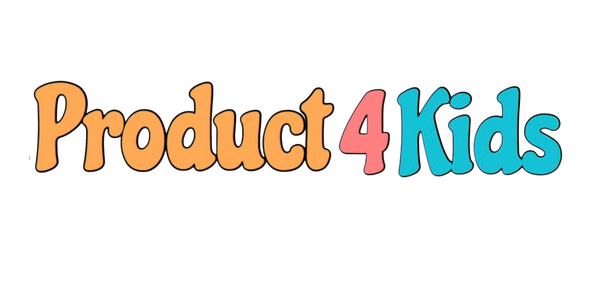Outline:
- Introduction
- Understanding Autism Spectrum Disorder (ASD)
- Definition and characteristics of ASD
- Importance of play in the development of autistic children
- Factors to Consider When Choosing Toys for Autistic Kids
- Sensory considerations
- Promoting communication and social skills
- Enhancing fine motor skills
- Top Toys for Autistic Kids
- Interactive sensory toys
- Building blocks and puzzles
- Art and craft supplies
- Pretend play and role-playing toys
- Adaptive and inclusive toys
- Tips for Engaging Autistic Kids in Play
- Creating a structured environment
- Utilizing visual supports
- Incorporating special interests
- Encouraging joint play
- Modifying toys for individual needs
- Benefits of Play for Autistic Kids
- Cognitive development
- Emotional and social growth
- Language and communication skills
- Sensory integration and regulation
- Conclusion
- Frequently Asked Questions (FAQs)
Toys for Autistic Kids: Promoting Play and Development
Autism Spectrum Disorder (ASD) is a developmental condition that affects individuals in various ways, particularly in communication, social interaction, and behavior. For autistic kids, playtime offers more than just entertainment. It serves as a crucial avenue for learning, development, and self-expression. In this article, we will explore the importance of play for autistic children and discuss the top toys that can support their growth and engagement.
Understanding Autism Spectrum Disorder (ASD)
Autism Spectrum Disorder is a neurodevelopmental disorder characterized by challenges in social interaction, communication, and repetitive behaviors. It affects individuals across a broad spectrum, with varying degrees of severity. Autistic children often have unique sensory processing differences and may experience difficulties in verbal and non-verbal communication.
Play is an essential aspect of childhood development. It provides opportunities for learning, problem-solving, and developing social skills. For autistic kids, play is even more crucial, as it can help them overcome challenges and foster their overall growth and well-being.
Factors to Consider When Choosing Toys for Autistic Kids
When selecting toys for autistic children, it is important to consider their specific needs and preferences. Here are some factors to keep in mind:
Sensory considerations
Autistic kids may have sensory sensitivities or seek specific sensory input. Therefore, toys that offer different textures, sounds, and visual stimulation can be beneficial. Consider toys with varying levels of sensory input to cater to individual sensory preferences.
Promoting communication and social skills
Toys that encourage communication and social interaction are valuable for autistic children. Look for toys that promote turn-taking, joint play, and imitation. These can aid in the development of language skills and the ability to engage with others.
Enhancing fine motor skills
Many autistic children struggle with fine motor skills. Toys that involve gripping, manipulating, and assembling can help improve these skills. Building blocks, puzzles, and toys with buttons or zippers are excellent choices.
Top Toys for Autistic Kids
-
Interactive sensory toys:
- Fidget spinners
- Light-up toys
- Vibrating toys
-
Building blocks and puzzles:
- LEGO sets
- Jigsaw puzzles
- Magnetic blocks
-
Art and craft supplies:
- Crayons and markers with different textures
- Play-Doh and clay
- Sticker books
-
Pretend play and role-playing toys:
- Dollhouses
- Kitchen sets
- Costumes and dress-up items
-
Adaptive and inclusive toys:
- Sensory-friendly swings
- Weighted blankets
- Communication boards
Tips for Engaging Autistic Kids in Play
To create an inclusive and engaging play environment for autistic children, consider the following tips:
Creating a structured environment
Establishing a predictable and structured play environment can help autistic kids feel more comfortable and engaged. Clear boundaries, visual schedules, and designated play areas can contribute to a sense of security.
Utilizing visual supports
Visual aids, such as picture schedules and visual instructions, can enhance understanding and communication. Visual supports help autistic children follow routines, navigate play activities, and express their needs.
Incorporating special interests
Autistic kids often have specific interests or obsessions. Incorporating their special interests into playtime can increase their motivation and engagement. For example, if a child is fascinated by trains, incorporating toy trains into play activities can foster their enthusiasm and participation.
Encouraging joint play
Facilitating opportunities for joint play with peers or family members can enhance social skills and promote interaction. Encourage turn-taking, sharing, and cooperative play to develop vital socialization abilities.
Modifying toys for individual needs
Adapt toys to accommodate the specific needs of autistic children. For instance, adding grips to crayons or using Velcro attachments for easier manipulation can help children with fine motor challenges. Modifying toys ensures inclusivity and maximizes their play experience.
Benefits of Play for Autistic Kids
Engaging in play offers numerous benefits for autistic children, including:
Cognitive development
Play activities stimulate cognitive growth by promoting problem-solving, critical thinking, and creativity. Children learn to explore and navigate the world around them, enhancing their cognitive abilities.
Emotional and social growth
Play provides a platform for emotional expression, self-regulation, and social skill development. It enables children to understand and manage their emotions, interact with others, and develop meaningful relationships.
Language and communication skills
Through play, autistic children can practice communication and language skills. Pretend play, for example, allows them to engage in imaginative dialogue and practice expressing their thoughts and feelings.
Sensory integration and regulation
Sensory play helps autistic children regulate their sensory experiences, promoting self-calming and relaxation. It also aids in sensory integration, enabling them to process and respond appropriately to sensory stimuli.
Conclusion
Play is an essential part of every child's development, including those on the autism spectrum. By choosing appropriate toys and creating an inclusive play environment, we can support the growth, learning, and well-being of autistic children. Remember, each child is unique, so understanding their individual needs and preferences is crucial. Let's promote play that encourages creativity, social interaction, and skill development for autistic kids.

